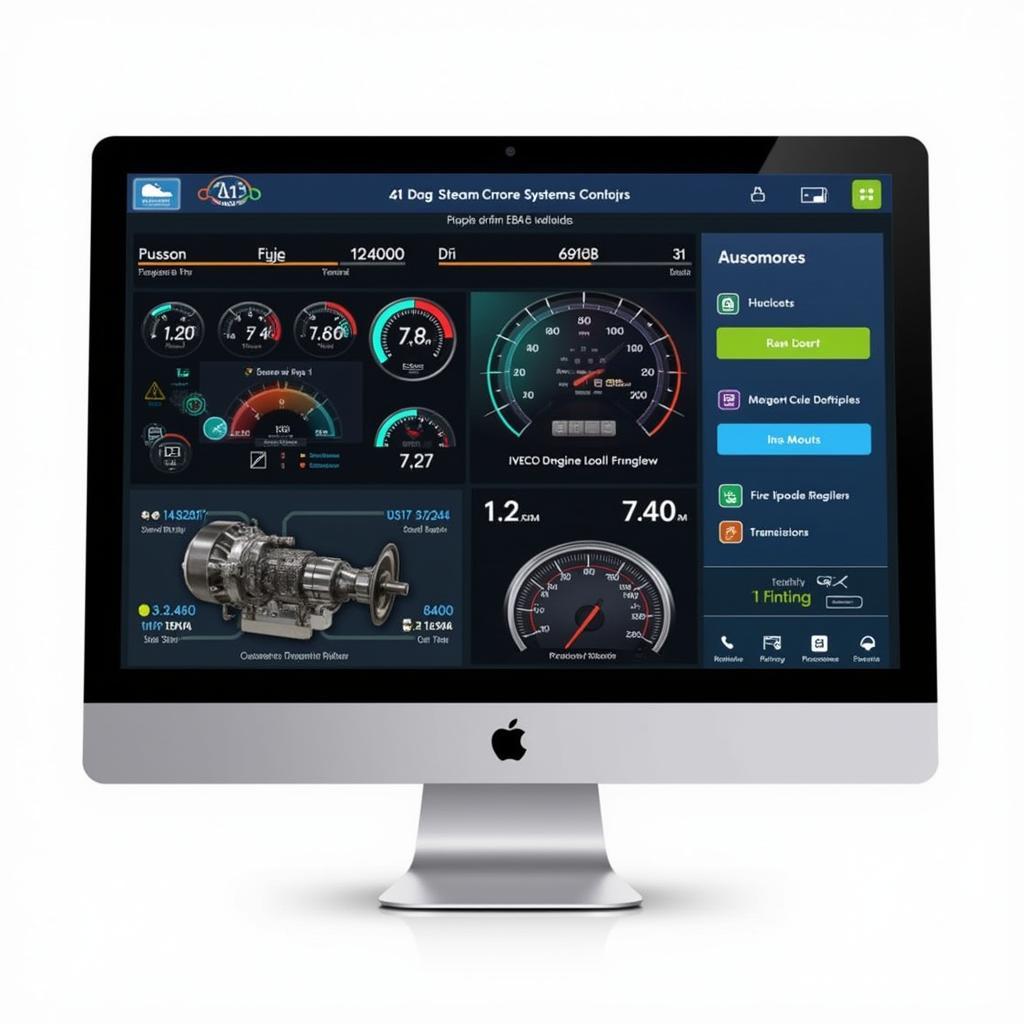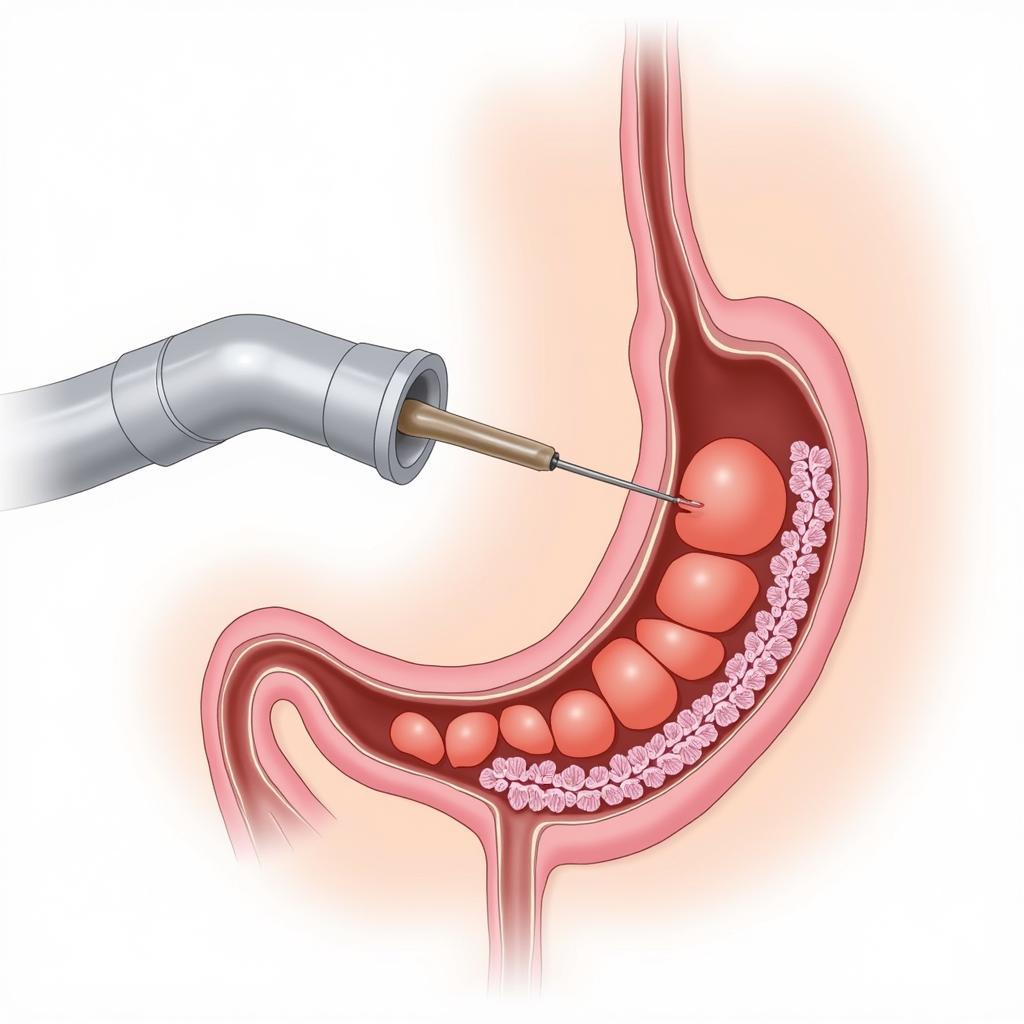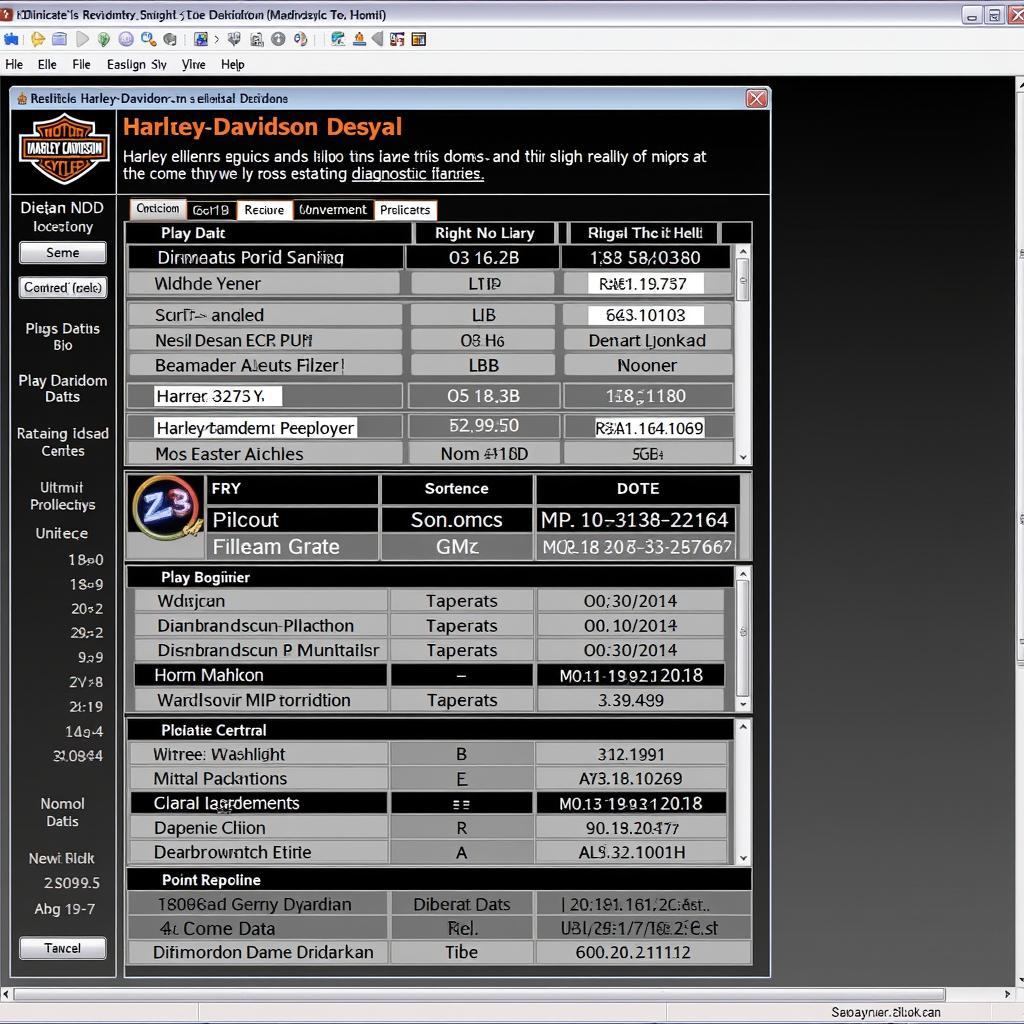The Iveco Diagnostic Tool is an essential piece of equipment for anyone who owns, operates, or services Iveco vehicles. This sophisticated tool provides a direct line of communication with a vehicle’s electronic control units (ECUs), allowing mechanics and technicians to diagnose and troubleshoot issues with unparalleled accuracy and efficiency.
As Iveco vehicles continue to evolve with increasingly complex electronic systems, the role of a reliable and powerful diagnostic tool becomes paramount. It’s no longer enough to rely solely on mechanical expertise; understanding and interpreting the data provided by an Iveco daily 4×4 diagnostic tool can mean the difference between a quick fix and hours of wasted time searching for the root cause of a problem.
Why is an Iveco Diagnostic Tool Essential?
Modern Iveco vehicles are equipped with intricate networks of sensors and ECUs that monitor and control everything from engine performance and emissions to braking systems and driver assistance features. When a problem arises, these systems generate diagnostic trouble codes (DTCs) that provide clues about the nature and location of the fault.
An Iveco diagnostic tool allows you to:
- Read and Clear DTCs: Identify the specific fault codes triggered by the vehicle’s systems, and then clear them once the issue is resolved.
- View Live Data Streams: Monitor real-time sensor readings, such as engine RPM, coolant temperature, fuel pressure, and more, to analyze system performance and pinpoint anomalies.
- Perform Actuator Tests: Activate specific components like injectors, solenoids, or valves to verify their functionality and isolate potential problems.
- Conduct Advanced Programming and Configurations: Access and modify vehicle settings, update software, and configure ECUs for optimal performance.
Choosing the Right Iveco Diagnostic Tool
Selecting the appropriate Iveco diagnostic tool depends largely on your specific needs and the types of Iveco vehicles you work with.
- OEM-Level Tools: These are the official diagnostic tools designed and manufactured by Iveco. They offer the most comprehensive functionality, including advanced programming and coding capabilities, but tend to be the most expensive option.
- Professional-Grade Aftermarket Tools: Numerous reputable aftermarket manufacturers produce high-quality diagnostic tools compatible with Iveco vehicles. These tools often provide a balance of functionality and affordability, making them suitable for independent workshops and experienced DIY enthusiasts.
- Entry-Level Code Readers: For basic code reading and clearing, affordable code readers are available. However, they may not offer the advanced features needed for in-depth diagnostics and troubleshooting.
When choosing a tool, consider factors such as:
- Vehicle Coverage: Ensure the tool supports the specific models and model years of the Iveco vehicles you work with.
- Software Features: Evaluate the tool’s capabilities, including live data streaming, actuator tests, and programming functions, to ensure they meet your requirements.
- User Interface: A user-friendly interface with intuitive menus and clear instructions can significantly enhance the diagnostic process.
Mastering the Iveco Diagnostic Tool
While the advanced technology behind an Iveco stralis diagnostic tool might seem daunting at first, understanding the basics of its operation can empower anyone to take control of their vehicle’s maintenance.
- Familiarize Yourself with the Interface: Take time to explore the tool’s menus, buttons, and display functions. Most diagnostic tools come with user manuals or online resources that provide detailed instructions.
- Start with Basic Diagnostics: Begin by connecting the tool and reading any stored DTCs. This will give you a starting point for further investigation.
- Utilize Live Data to Analyze Issues: Monitor relevant sensor readings while the engine is running to gain insights into real-time system performance and identify discrepancies.
- Consult Repair Manuals: Always refer to the vehicle’s service manual for detailed information about DTC interpretations, component locations, and recommended repair procedures.
 Diagnostic software interface for Iveco vehicles
Diagnostic software interface for Iveco vehicles
Beyond Diagnostics: The Future of Iveco Repair
As technology rapidly advances, the automotive industry is witnessing a paradigm shift towards predictive maintenance and remote diagnostics. Iveco, at the forefront of innovation, is integrating telematics and cloud-based solutions to optimize vehicle uptime and streamline maintenance processes.
- Predictive Maintenance: By continuously monitoring vehicle data, advanced algorithms can identify potential issues before they escalate into major problems. This proactive approach helps minimize downtime and optimize maintenance schedules.
- Remote Diagnostics: Cloud-based platforms enable remote access to vehicle data, allowing fleet managers and service technicians to diagnose issues and even perform software updates remotely.
“The integration of telematics and data analytics is transforming the way we approach vehicle maintenance,” says John Smith, a leading automotive technology expert. “With real-time insights and predictive capabilities, we can now anticipate problems before they arise, significantly reducing downtime and improving overall efficiency.”
Investing in an Iveco Diagnostic Tool: A Wise Decision
For Iveco owners, operators, and workshops, investing in a quality Iveco daily diagnostic tool for sale is a decision that pays dividends in the long run. The ability to accurately diagnose and troubleshoot issues saves time, money, and potential headaches down the road.
Whether you’re a seasoned mechanic or a proactive vehicle owner, an Iveco diagnostic tool empowers you to take control of your vehicle’s health and ensure optimal performance for years to come. Contact ScanToolUS today at +1 (641) 206-8880 or visit our office at 1615 S Laramie Ave, Cicero, IL 60804, USA, to find the perfect Iveco diagnostic tool for your needs.
FAQs
-
Can I use a generic OBD-II scanner on my Iveco vehicle? While generic OBD-II scanners can read basic engine codes, they often lack the functionality to access all of an Iveco’s systems and may not provide accurate or complete information.
-
Do I need to be a mechanic to use an Iveco diagnostic tool? Basic diagnostic tools are user-friendly and can be used by vehicle owners with some technical knowledge. However, advanced features and programming functions are best left to trained professionals.
-
How often should I use my Iveco diagnostic tool? It’s good practice to periodically scan your vehicle for codes, especially if you notice any unusual performance issues.
-
Can I update the software on my Iveco diagnostic tool? Most reputable diagnostic tool manufacturers release regular software updates to improve functionality and vehicle coverage. These updates can often be downloaded and installed online.


